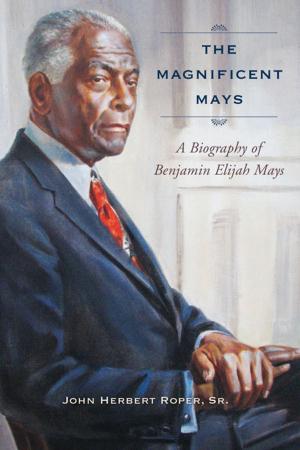Extravagant Postcolonialism
Modernism and Modernity in Anglophone Fiction, 1958-1988
Fiction & Literature, Literary Theory & Criticism| Author: | Brian T. May | ISBN: | 9781611173802 |
| Publisher: | University of South Carolina Press | Publication: | November 3, 2014 |
| Imprint: | University of South Carolina Press | Language: | English |
| Author: | Brian T. May |
| ISBN: | 9781611173802 |
| Publisher: | University of South Carolina Press |
| Publication: | November 3, 2014 |
| Imprint: | University of South Carolina Press |
| Language: | English |
Brian T. May argues that, contrary to widely held assumptions of postcolonial literary criticism, a distinctive subset of postcolonial novels significantly values and scrupulously explores a healthy individuality. These “extravagant” postcolonial works focus less on collective social reality than on the intimate subjectivity of their characters. Their authors, most of whom received some portion of a canonical western education, do not subordinate the ambitions of their fiction to explicit political causes, but they do create a cosmopolitan rhetorical focus suitable to their well-educated, “western trained,” audiences. May pursues this argument by scrutinizing novels composed during the thirty-year post-independence postcolonial era of Anglophone fiction, a period that began with the Nigerian Chinua Achebe’s Things Fall Apart and that ended, many would say, with the Ayatollah Khomeini’s 1989 publication of the Rushdie Fatwa. He contends that the postcolonial authors under consideration—Naipaul, Rushdie, Achebe, Rhys, Gordimer, and Coetzee—inherited modernism and refashioned it. His account of their work demonstrates how it reflects and transfigures modernists such as Conrad, Eliot, Yeats, Proust, Joyce and Beckett. Tracing the influence of humanistic virtues and the ethical and aesthetic significance of individualism, May demonstrates that these works of “extravagant postcolonialism” are less postcolonial than they are a continuation and evolution of modernism.
Brian T. May argues that, contrary to widely held assumptions of postcolonial literary criticism, a distinctive subset of postcolonial novels significantly values and scrupulously explores a healthy individuality. These “extravagant” postcolonial works focus less on collective social reality than on the intimate subjectivity of their characters. Their authors, most of whom received some portion of a canonical western education, do not subordinate the ambitions of their fiction to explicit political causes, but they do create a cosmopolitan rhetorical focus suitable to their well-educated, “western trained,” audiences. May pursues this argument by scrutinizing novels composed during the thirty-year post-independence postcolonial era of Anglophone fiction, a period that began with the Nigerian Chinua Achebe’s Things Fall Apart and that ended, many would say, with the Ayatollah Khomeini’s 1989 publication of the Rushdie Fatwa. He contends that the postcolonial authors under consideration—Naipaul, Rushdie, Achebe, Rhys, Gordimer, and Coetzee—inherited modernism and refashioned it. His account of their work demonstrates how it reflects and transfigures modernists such as Conrad, Eliot, Yeats, Proust, Joyce and Beckett. Tracing the influence of humanistic virtues and the ethical and aesthetic significance of individualism, May demonstrates that these works of “extravagant postcolonialism” are less postcolonial than they are a continuation and evolution of modernism.















